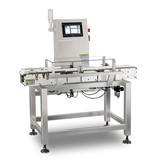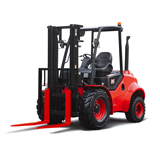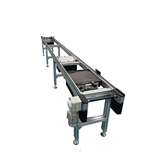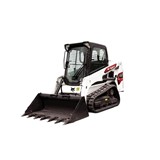Chris Williams reports exclusively for IndustrySearch...
"What we want to see is decisions on pricing that ensure the longer term sustainability of food production…What's important is that these price wars do not undermine the value of the products which farmers and growers work tirelessly to produce."
It may resonate like a sound bite from the Australian farm lobby once again taking aim at Coles and Woolworths, but these words come from Meurig Raymond, the President of the Britain's National Farmers Union, highlighting the plight of British farmers in the face of a cutthroat retail environment in 2014.
Retail landscape
It will be cold comfort to our local farmers to know their northern hemisphere counterparts are suffering a similar fate, but moreover the problem is significantly magnified in Australia because of our landscape – our retail landscape that is.
In the UK there are a 'big four' supermarket chains – Tesco, Sainsbury's, Morrisons and ASDA, then there are two significant players at the discount end of the market, Aldi and Lidl, as well as premium brand Waitrose snapping at their heels. Tesco has the largest market share with 28.6 per cent, while no other chain controls more than 18 per cent of the market.
In Australia we have a 'big two' – Coles and Woolworths – and while there is some competition from Aldi and IGA, they are bit part players, with Woolworths (39 per cent) and Coles (33.5 per cent) controlling almost three quarters of the market between them.
While there is a school of thought that argues that aggressive discount retail competitors will also drive down prices paid to farmers in a bid to attract consumers, the effective duopoly in Australia has the potential to be even more ruinous, particularly when the major retailers are accused of operating in an anti-competitive manner.
As Dr Carol Richards of the School of Social Science at the University of Queensland recently told IndustrySearch, "We've got basically two supermarket chains with 75-80 per cent of the market and it's not a good situation. It's only good for the supermarkets."
Originally from England, Dr Richards said the UK's version of the ACCC had determined that any retailer with more than 8 per cent market share had the ability to distort the market.
"And yet in Australia they've allowed 40 per cent as the benchmark and said it's not anti-competitive," Dr Richards said.
Unconscionable conduct
None of which will surprise Australian farmers who have been supplying Coles under its Active Retail Collaboration (ARC) scheme, prompting the ACCC to bare its teeth and accuse Coles of "unconscionable conduct", instituting proceedings against the retailer in the Federal Court of Australia earlier this month.
According to the ACCC, Coles developed a strategy to improve its earnings by obtaining better trading terms from its suppliers. The ACCC alleges Coles introduced ongoing rebates to be paid by its suppliers, purportedly on the basis that changes Coles had made to its supply chain would ultimately benefit them.
The ACCC also alleges that Coles gave 200 of its smaller suppliers a matter of days to agree with the program, and instructed staff to threaten commercial consequences if the supplier did not agree.
The investigation has been ongoing for the past two and a half years, in no small part because farmers and processors have been afraid to speak out against their all-powerful customer.
At the end of 2011 the ACCC sought information from suppliers in relation to these concerns, but said it quickly became apparent they were reluctant to speak for fear of what they perceived may be negative consequences of cooperating with the competition watchdog.
When the ACCC invited suppliers to provide information on a confidential basis, 50 suppliers came forward.
"The conduct of Coles alleged by the ACCC in these proceedings was capable of causing significant detriment to small suppliers' businesses. This could have resulted in these businesses becoming less able to plan and less able to innovate in the market, with resulting reduced economic efficiency and consumer detriment," ACCC Chairman Rod Sims said.
"The ACCC alleges that Coles used undue pressure and unfair tactics in negotiating with suppliers, provided misleading information and took advantage of its superior bargaining position, so that its overall conduct was in all the circumstances unconscionable."
Farmers welcome action
The nation's peak body representing farmers, the National Farmers' Federation (NFF), welcomed the investigation, with NFF President Brent Finlay saying the case raised serious concerns across the Australian farm and small business sectors.
"In Australia, the supermarkets have considerable power when it comes to dealing with suppliers, and unfortunately, suppliers and farmers don't often have that same bargaining power," Finlay said.
"The NFF recognises the importance of an Australian food supply chain where all players – farmers, processors and retailers – have the opportunity to make a profit, and that there's not a misuse of market power by one player against another."
Finlay said if the allegations were proved true this type of behaviour in the market place was capable of causing significant detriment to small business operators.
"The NFF maintains its principal policy of supporting a mandatory code that ensures transparency and equity across the supply chain. We want to see the implementation of fair arrangements that prevent any further activities or outcomes that negatively impact on farmer revenue.
"The NFF was actively involved in the development of a prescribed voluntary code with retailers and processors. Should the ACCC allegations prove true, this will add weight to our decision to move to a mandatory approach, however we have not shut the door to what a prescribed voluntary code could offer in terms of a productive way forward on this issue.
"Ultimately, supermarket heavyweights should be forging stronger ties with Australian suppliers, not weakening them."
Dairy farmers on the up
There may however be better news for Australia's dairy farmers, who have taken a collective battering since the now infamous supermarket 'milk war' which saw Coles and Woolworths going head-to-head by slashing the cost of milk to $1 a litre back in 2011.
Three yours down the track and some industry observers say most milk produced by Australian dairy farmers was still being produced at a loss, but the announcement last month that Woolworths had entered into a 10 year contract with Parmalat should at least provide some certainty to Queensland dairy farmers who supply the processor.
Better news still is the breakthrough in negotiations between China and the Australian dairy industry, allowing a fresh milk export trial by dairy co-operative, Norco. The company now hopes to export 20 million litres of fresh milk to China in the next 12 months, retailing for between $7 and $9 a litre.
Queensland dairy farmer Craig Sellars is a supplier to Norco, and said exports was critical to the industry's future survival.
"Reduced margins have squeezed farmers and hindered the industry's ability to grow, and that's why we're increasingly looking to markets like China as an alternative destination for our product," Sellars said.
"As dairy farmers and as an industry we can again grow and prosper with the right access to the right markets."
- Suppliers
- New to IndustrySearch? Book a Demo
- Advertise with us
- Login
- Email Marketing
- Buyers
- Get Quotes
- Articles & Ideas
- Login
- Subscribe to newsletter
- My Details
- Get Quotes
- Automation & Control
- Automotive Workshop Equipment
- Cleaning Equipment
- Construction & Heavy Machinery
- Conveyor Systems & Components
- Cranes & Hoists
- Electrical & Power Generation Equipment
- Electronic Components
- Farming & Agriculture
- Food & Beverage Processing
- Forklifts & Attachments
- Hydraulic & Pneumatic Equipment
- Industrial Materials, Tools & Components
- Industrial Pumps
- IT Hardware & Industrial Computing
- IT Software & Applications
- Laboratory Equipment & Instruments
- Manufacturing & Industrial Equipment
- Material Handling & Lifting
- Metalworking & Machining
- Mining Equipment & Machinery
- Packaging & Labelling Machinery
- Pallet Management
- Personal Protective Equipment
- Security & Surveillance
- Test & Measurement
- Transport Equipment
- Trucks & Trailers
- Warehouse Storage & Racking
- Waste & Environmental Management
- Welding Machines & Accessories
- Woodworking & Joinery Machines
- Workplace Equipment
- Workplace Safety Equipment
- Get Quotes
- Automation & Control
- Automotive Workshop Equipment
- Cleaning Equipment
- Construction & Heavy Machinery
- Conveyor Systems & Components
- Cranes & Hoists
- Electrical & Power Generation Equipment
- Electronic Components
- Farming & Agriculture
- Food & Beverage Processing
- Forklifts & Attachments
- Hydraulic & Pneumatic Equipment
- Industrial Materials, Tools & Components
- Industrial Pumps
- IT Hardware & Industrial Computing
- IT Software & Applications
- Laboratory Equipment & Instruments
- Manufacturing & Industrial Equipment
- Material Handling & Lifting
- Metalworking & Machining
- Mining Equipment & Machinery
- Packaging & Labelling Machinery
- Pallet Management
- Personal Protective Equipment
- Security & Surveillance
- Test & Measurement
- Transport Equipment
- Trucks & Trailers
- Warehouse Storage & Racking
- Waste & Environmental Management
- Welding Machines & Accessories
- Woodworking & Joinery Machines
- Workplace Equipment
- Workplace Safety Equipment
Trusted by 1.2 million Australian industrial buyers
Buyers
- Discover products & solutions
- Login
- Subscribe To Newsletter
- Browse All Products
- Read Articles
Suppliers
Advertise
- Promote your products & solutions
- New to IndustrySearch? Book a Demo
- Login / Forgot Password
- Advertise Your Products
- Success Stories
- Email Marketing
- Suppliers
- Advertise with us
- Login
- Email Marketing
- Buyers
- Get Quotes
- Articles & Ideas
- Login
- Subscribe to newsletter
- My Details
Get Quotes
- Automation & Control
- Automotive Workshop Equipment
- Cleaning Equipment
- Construction & Heavy Machinery
- Conveyor Systems & Components
- Cranes & Hoists
- Electrical & Power Generation Equipment
- Electronic Components
- Farming & Agriculture
- Food & Beverage Processing
- Forklifts & Attachments
- Hydraulic & Pneumatic Equipment
- Industrial Materials, Tools & Components
- Industrial Pumps
- IT Hardware & Industrial Computing
- IT Software & Applications
- Laboratory Equipment & Instruments
- Manufacturing & Industrial Equipment
- Material Handling & Lifting
- Metalworking & Machining
- Mining Equipment & Machinery
- Packaging & Labelling Machinery
- Pallet Management
- Personal Protective Equipment
- Security & Surveillance
- Test & Measurement
- Transport Equipment
- Trucks & Trailers
- Warehouse Storage & Racking
- Waste & Environmental Management
- Welding Machines & Accessories
- Woodworking & Joinery Machines
- Workplace Equipment
- Workplace Safety Equipment
Get Quotes
- Automation & Control
- Automotive Workshop Equipment
- Cleaning Equipment
- Construction & Heavy Machinery
- Conveyor Systems & Components
- Cranes & Hoists
- Electrical & Power Generation Equipment
- Electronic Components
- Farming & Agriculture
- Food & Beverage Processing
- Forklifts & Attachments
- Hydraulic & Pneumatic Equipment
- Industrial Materials, Tools & Components
- Industrial Pumps
- IT Hardware & Industrial Computing
- IT Software & Applications
- Laboratory Equipment & Instruments
- Manufacturing & Industrial Equipment
- Material Handling & Lifting
- Metalworking & Machining
- Mining Equipment & Machinery
- Packaging & Labelling Machinery
- Pallet Management
- Personal Protective Equipment
- Security & Surveillance
- Test & Measurement
- Transport Equipment
- Trucks & Trailers
- Warehouse Storage & Racking
- Waste & Environmental Management
- Welding Machines & Accessories
- Woodworking & Joinery Machines
- Workplace Equipment
- Workplace Safety Equipment
Trusted by 1.2 million Australian industrial buyers





-160x160-state_article-rel-cat.png)
-160x160-state_article-rel-cat.png)








-160x160-state_article-rel-cat.png)








